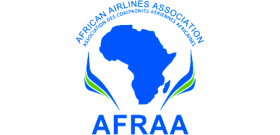 Soaring Taxes Stifle African Aviation’s Growth Potential
Soaring Taxes Stifle African Aviation’s Growth Potential
A recent report from the African Airlines Association (AFRAA) reveals a concerning trend: exorbitant air travel taxes are hindering the growth of African aviation. Travel agents across the continent need to be aware of this issue and its potential impact on their businesses.
The report highlights that African passengers pay an average of \$68 in taxes per ticket, more than double the amount levied on travelers in Europe or the Middle East. This disparity raises critical questions about the allocation of these taxes and their impact on the industry’s overall development.
So, where does this money go? Investigations reveal that the bulk of aviation taxes collected in Africa goes directly into general government revenue. Instead of being earmarked for aviation-specific projects, these funds are often used to finance a broad range of government expenditures. This practice, despite recommendations from industry bodies like AFRAA and ICAO, deprives the aviation sector of crucial investments in infrastructure, safety, and service improvements.
The lack of reinvestment is a significant concern for stakeholders. While some countries, like South Africa, have taxes like the Air Passenger Tax (APT) nominally intended for infrastructure development, the actual allocation and impact of these funds remain unclear. This lack of transparency fuels concerns about the efficient use of aviation tax revenue.
The 2024 AFRAA Taxes and Charges Study Review provides a detailed analysis of this issue. The study reveals that for international departures, taxes can reach as high as \$298 per passenger in Gabon, with other countries like Sierra Leone, Nigeria, and Djibouti also imposing hefty charges. These high taxes contribute to inflated airfares, making air travel less accessible and potentially impacting passenger numbers.
The AFRAA report also highlights a concerning trend: a 3% increase in average taxes and charges for African air passengers compared to 2022. This rise, partly attributed to post-pandemic fiscal recovery efforts, further burdens airlines and passengers. The introduction of environmental taxes, while important for global climate goals, adds another layer of cost to an already overtaxed industry.
The impact of these high taxes is evident in the industry’s growth trajectory. While African aviation has seen a robust recovery from the pandemic, with passenger numbers in 2024 surpassing pre-pandemic levels, the high tax burden poses a significant threat to sustained growth. The price elasticity of demand analysis, calculated using AFRAA data, reveals that increased taxes have a notable impact on passenger traffic, particularly in West and Central Africa.
The analysis shows an elasticity of demand ranging from 2.34 to 3.05 in these regions, indicating that a 1% increase in taxes leads to a more than 2% decrease in passenger numbers. This sensitivity to price underscores the importance of addressing the issue of high aviation taxes to ensure the continued growth and competitiveness of the African aviation market.
The current tax regime in African aviation raises serious questions about its sustainability. While governments need to generate revenue, the over-reliance on aviation taxes, coupled with the lack of reinvestment in the sector, creates a vicious cycle of high fares, reduced demand, and hindered growth. This situation calls for a more balanced and strategic approach to aviation taxation, one that prioritizes the long-term development and prosperity of the African aviation industry.
For travel agents, understanding the dynamics of aviation taxes is crucial. By advocating for fairer and more transparent tax policies, agents can contribute to a healthier aviation sector, ultimately benefiting their businesses and the wider travel industry. A thriving aviation sector is essential for connecting Africa to the world, facilitating tourism, and driving economic growth across the continent.
